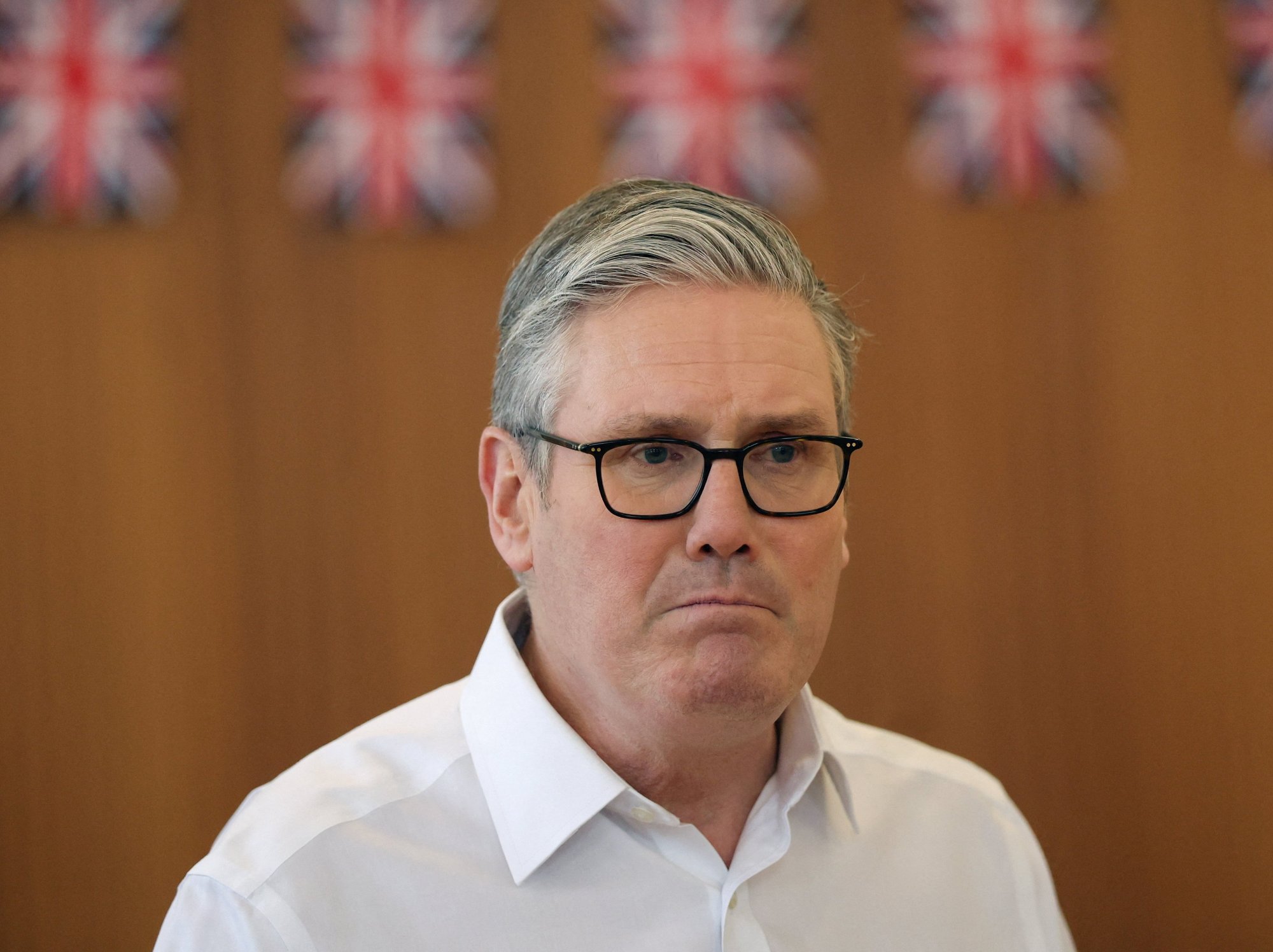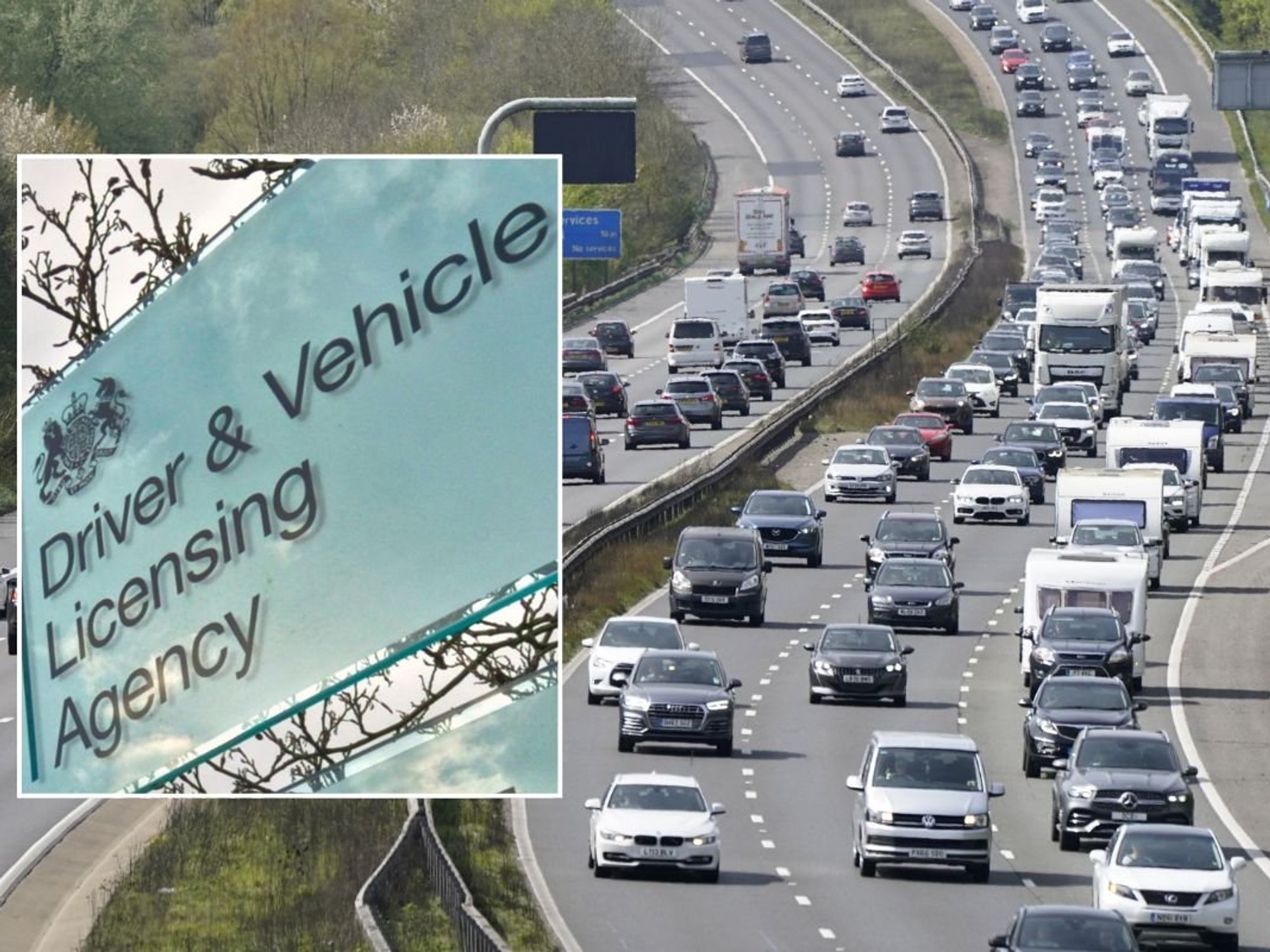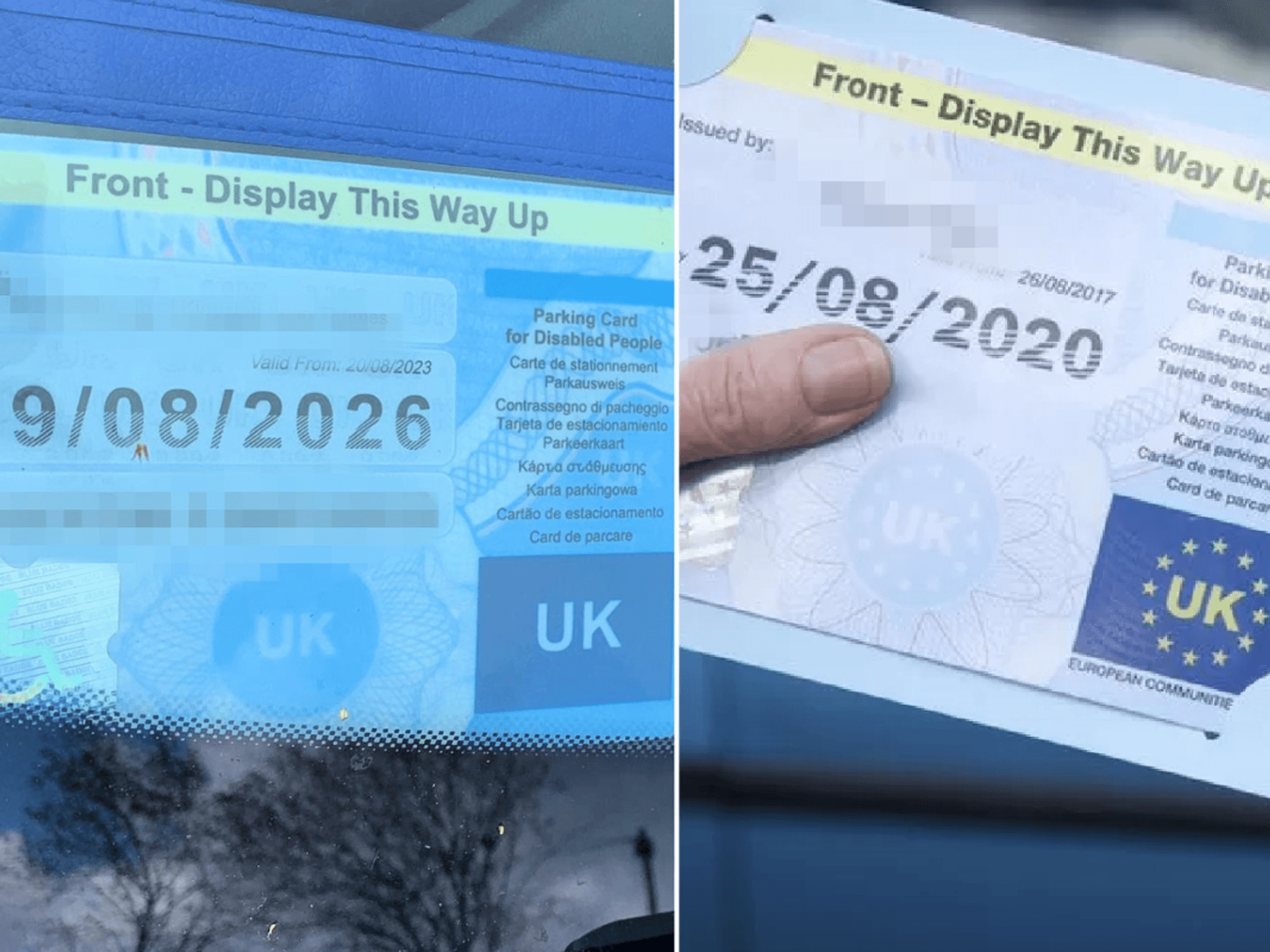Donald Trump's royal embrace just helped topple Labour. Revenge is a dish best served cold - Lee Cohen
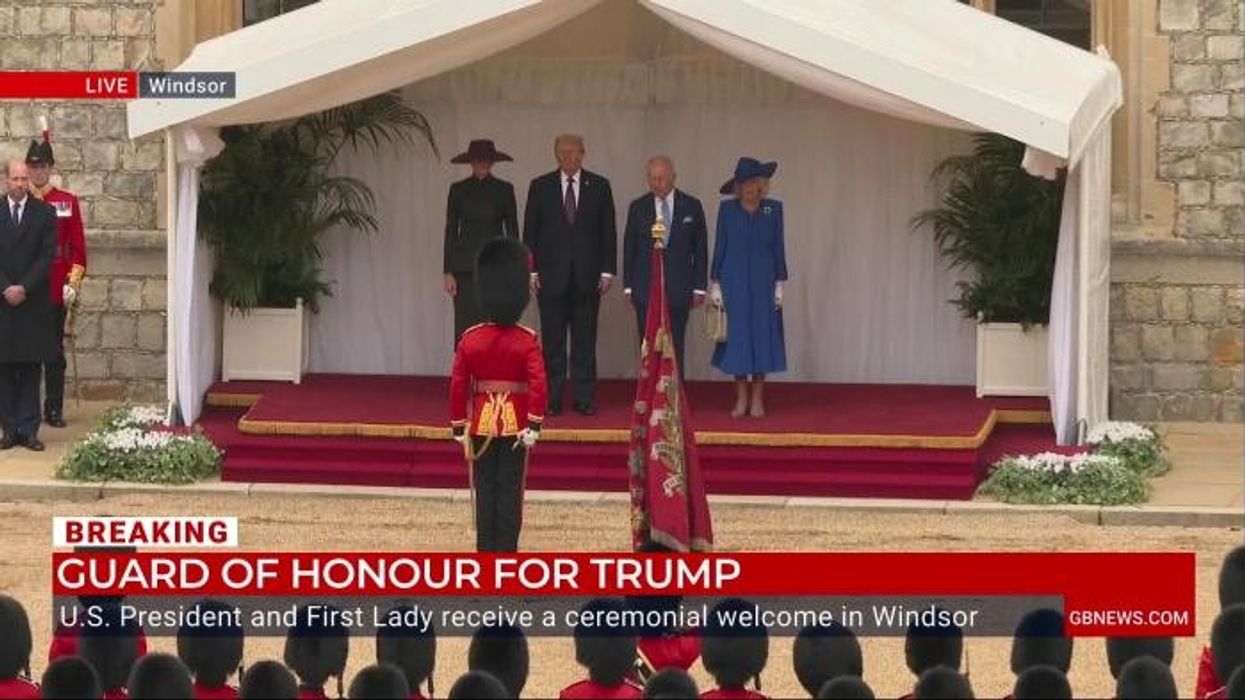
WATCH: Donald Trump and King Charles make ‘deliberate point’ as they carry out inspection of the guard |
GB
The American leader seems more aligned with the UK's foundational principles than the sitting Prime Minister
Don't Miss
Most Read
Trending on GB News
It stirred my pride watching President Trump and the first lady warmly welcomed for an unprecedented second state visit to Britain by the King. Hosted amid the grandeur of Windsor, it's a moment that underscores the enduring pull of Britain's traditions.
In a landscape where Starmer's government grapples with grave missteps, why does this outspoken American leader seem more aligned with the UK's foundational principles than some of your own leaders?
From my vantage point as a former UK policy adviser to the US Congress, Trump's profound kinship with Britain represents more than courtesy—it's a strategic endorsement of Britain’s historic global status, a stark counterpoint to Labour's international hesitations.
This visit isn't mere pageantry; it's a reminder of what strong alliances look like. Trump's perspective echoes the ethos many Britons hold dear: a respect for sovereignty, history, and unapologetic national pride.
As someone who's long advocated for deeper Anglo-American collaboration, I see in his approach a blueprint for revitalising Britain's global standing, free from the entanglements of Brussels or overreaching global bodies.
The former president's connection to the UK is profound and longstanding, woven into his very background.
With maternal roots tracing back to Scotland, Trump has invested substantially in landmarks like Turnberry, viewing them as emblems of Britain's resilient character rather than mere business opportunities. This isn't superficial; it's a genuine nod to the cultural depth that defines your nation.
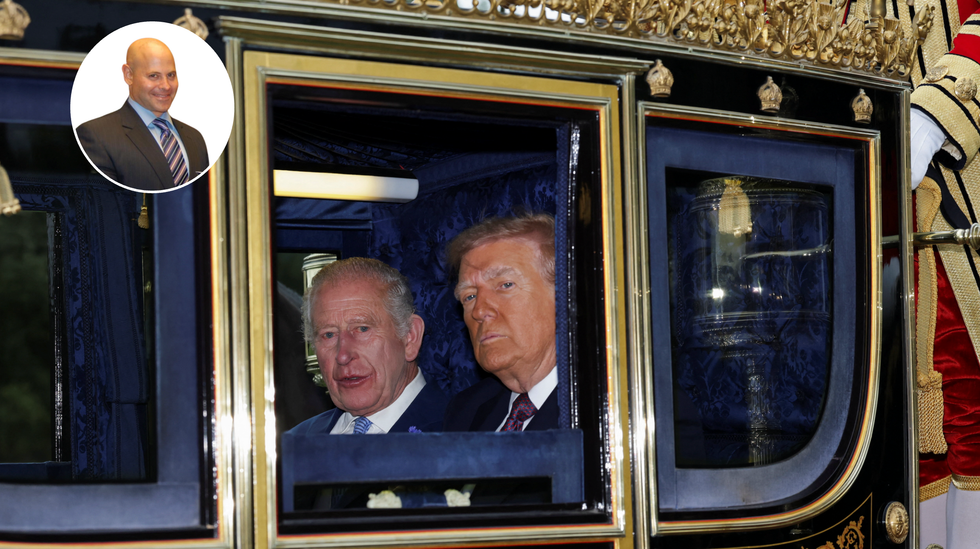
Donald Trump's royal embrace just helped topple Labour. Revenge is a dish best served cold - Lee Cohen
|Getty Images
Like so many of us yanks, growing up, Trump drew inspiration from figures like Winston Churchill, whose steadfast resolve in the face of adversity resonates deeply today as Britain navigates economic pressures and border concerns.
His frequent references to Churchill highlight a shared appreciation for the defiance that shaped Britain’s wartime legacy—a quality sorely needed in confronting modern challenges.
Equally telling is Trump's regard for Margaret Thatcher, whom he described as an exemplary figure of leadership in the 1980s. Her unyielding stance against bureaucratic overreach mirrors his own battles with entrenched establishments.
In an age where progressive agendas often dilute national identity, Trump's alignment with Thatcher's principles serves as a defence of Britain's core freedoms.
This affinity counters the cultural dilution promoted by certain left-leaning policies, reinforcing the unfiltered traditions that make the UK unique. It's a perspective that champions the monarchy's role not as an outdated relic, but as a symbol of continuity and strength.
On the policy front, Trump's support for Britain has been unwavering, particularly in championing the UK’s departure from the EU.
He famously hailed Brexit as a visionary step toward self-determination, recognising it as a bold assertion of autonomy akin to America's founding spirit.
This endorsement wasn't empty rhetoric; it acknowledged the same tenacity that propelled Britain through historic trials, offering a model for reclaiming control in an interconnected world.
Looking ahead, Trump's vision includes favourable trade arrangements that prioritise the UK's post-Brexit position, notably a tech partnership that smacks of bilateral promise.
His recent tariff adjustments—imposing 10 per cent on British goods compared to 20 per cent on the EU (April 2025)—demonstrate a clear preference for strengthening bilateral ties.
Such moves promise economic uplift, from job creation to enhanced market access, at a time when domestic growth is stagnant or worse.
The King's invitation for this visit exemplifies astute diplomacy, cutting through the noise of Labour's criticisms. Trump's pushback against tech giants' overreach also safeguards shared ideals, protecting open discourse and historical symbols from censorship trends. In essence, his policies provide a bulwark against the conformity imposed by international elites.
In Britain's current climate, marked by policy gridlock under Starmer—from energy debates to migration management—Trump's outlook presents practical alternatives, and the UK and Europe have already leaned into many of his negotiation points, such as more defence spending.
His emphasis on robust borders and energy independence offers lessons for addressing British woes, without the baggage of supranational mandates.
The state visit exposes the shortcomings in many among Labour's "Never Trump" mindset, which risks isolating valuable partners.
Figures like Sadiq Khan, with their history of protest-driven distractions, exemplify a divisiveness that hinders progress. Instead, Trump's engagement highlights the monarchy's neutral influence as a bridge-builder, fostering relations that transcend partisan squabbles.
Geopolitically, aligning with a Trump-led America could surely fortify defences against threats from China or Russia, ensuring Britain's security in a volatile era.
This isn't about blind allegiance; it's about leveraging mutual respect for tangible gains, from defence and trade pacts to innovation sharing.
This state visit isn’t just ceremonial. It’s strategic. It’s symbolic. It’s necessary. Because in a world reshaping before our eyes, having the world’s most powerful man as a friend and ally is not a liability—it’s a rare and valuable asset. Especially when he actually understands and admires who you are.
It’s time to drop the blimps and tantrums. The truth is far more compelling: Donald Trump believes in Britain. And it’s high time Britain believed in itself enough to return the favour.
More From GB News





